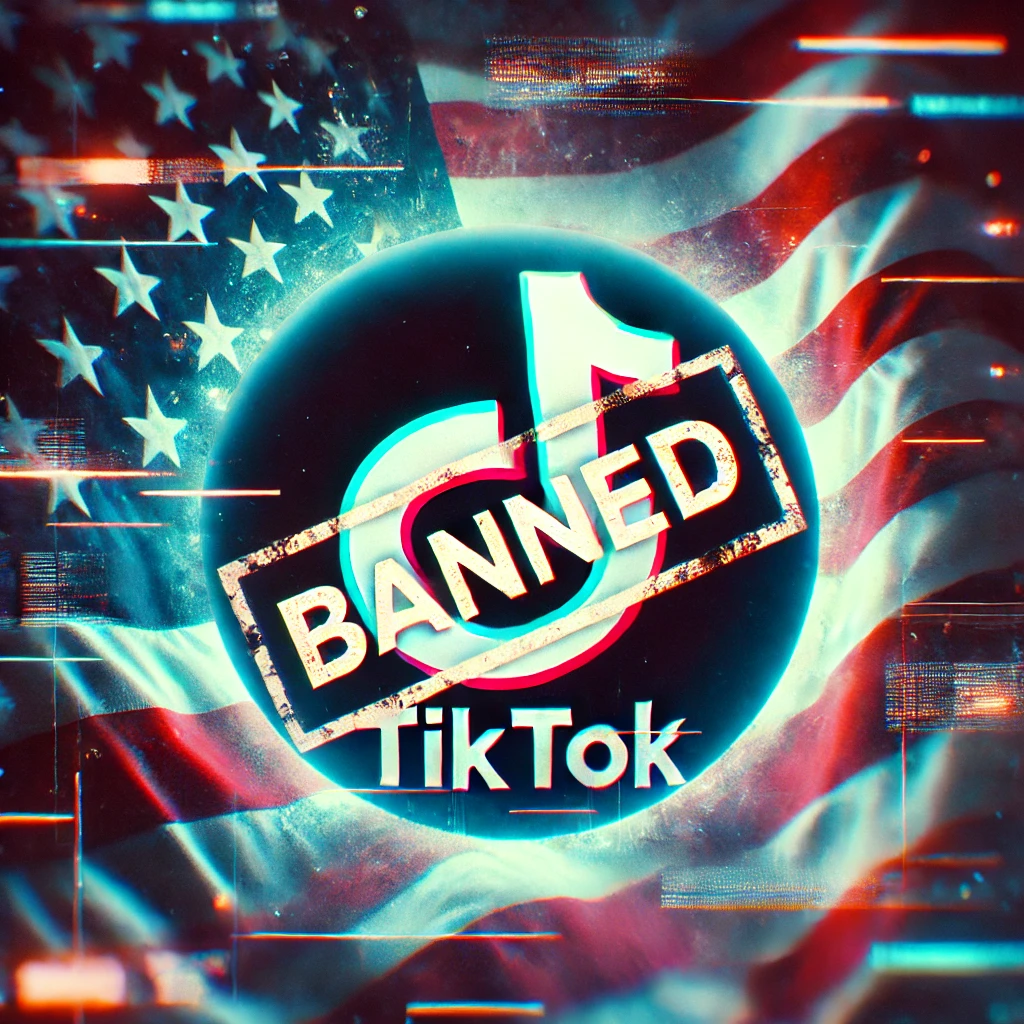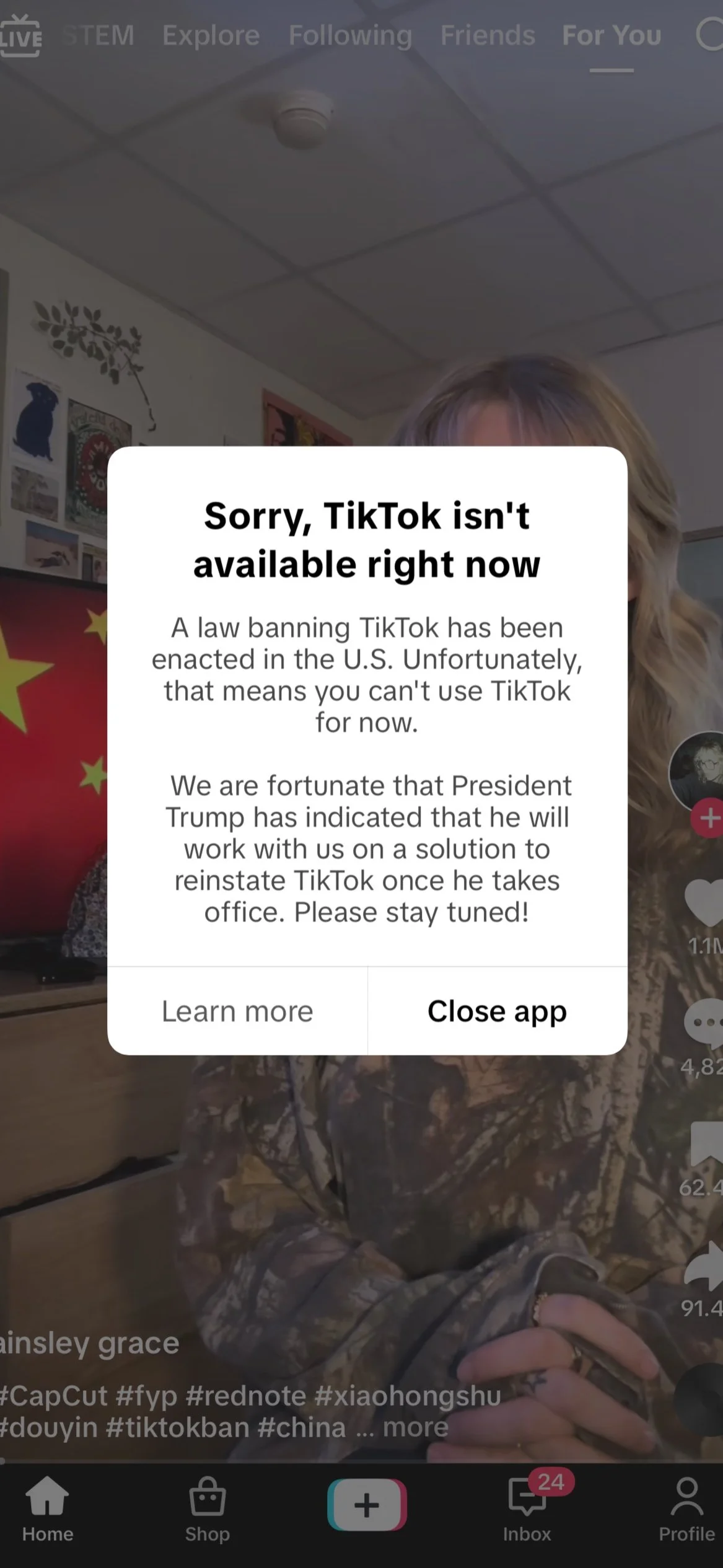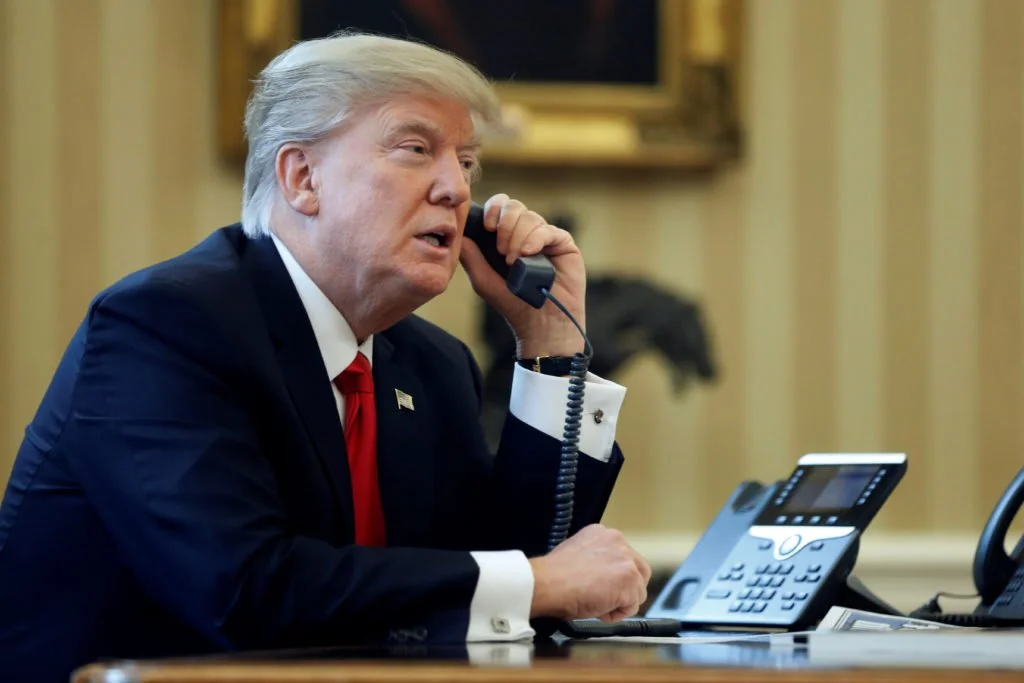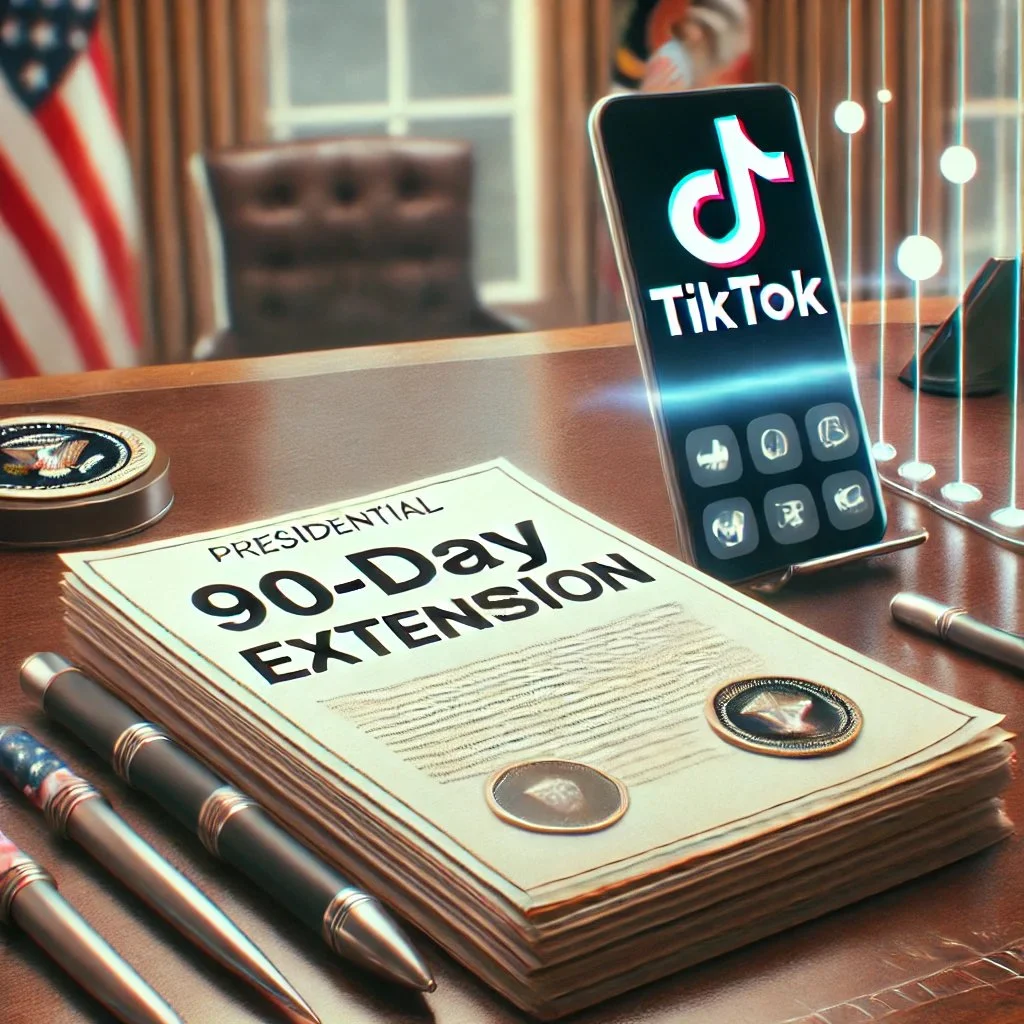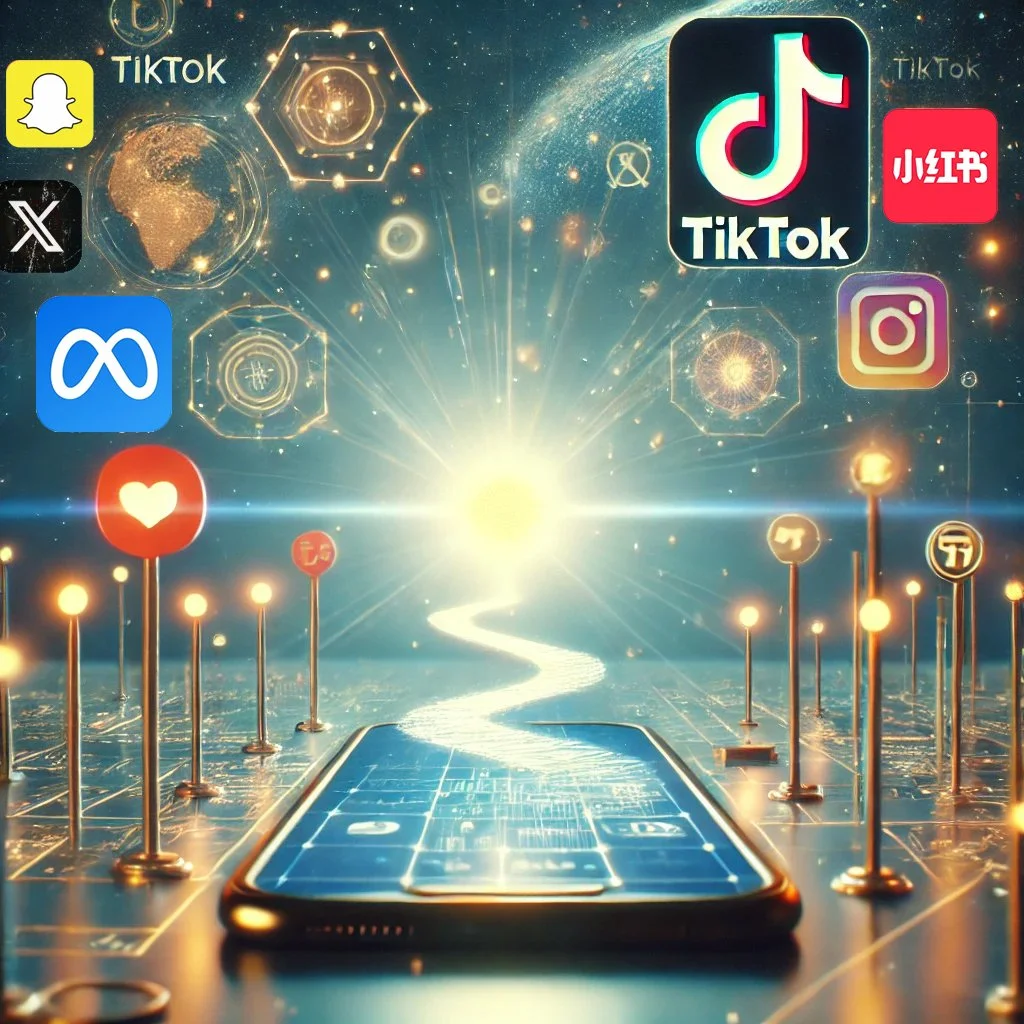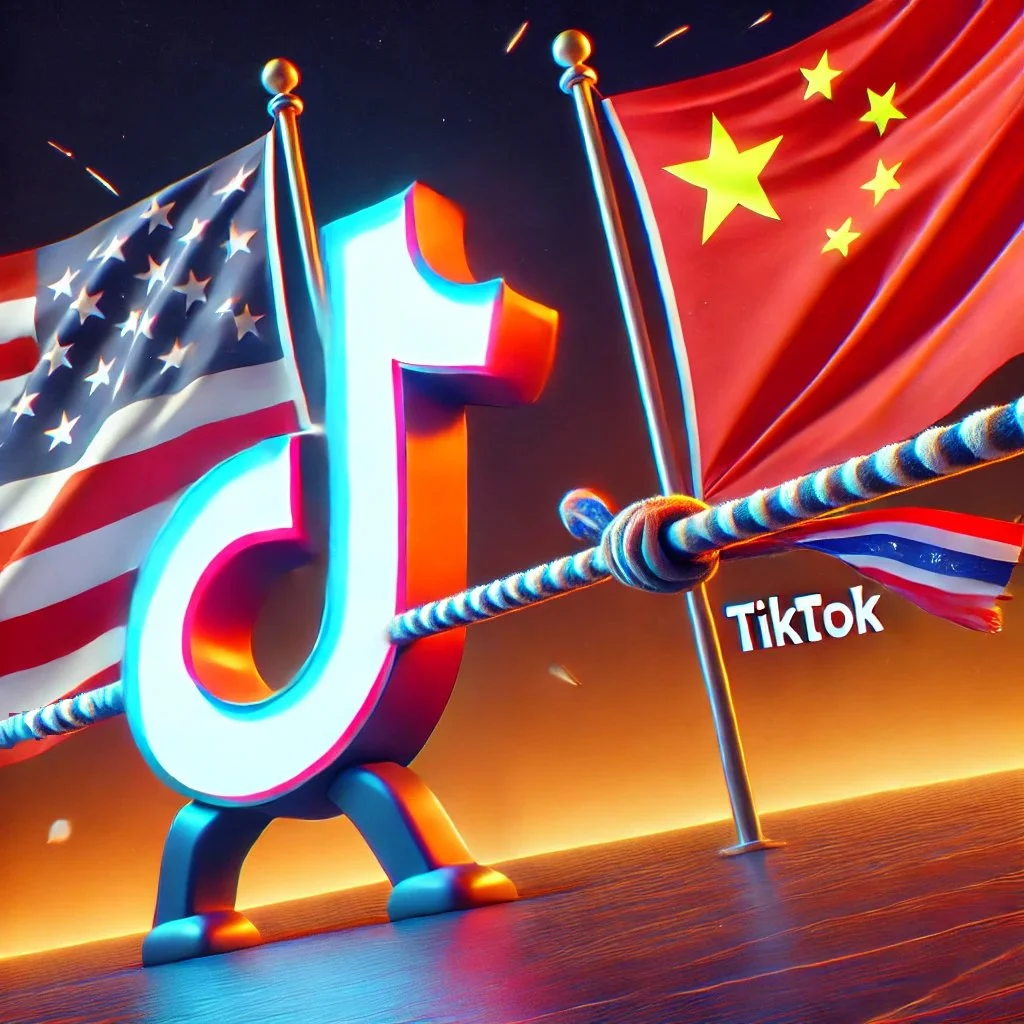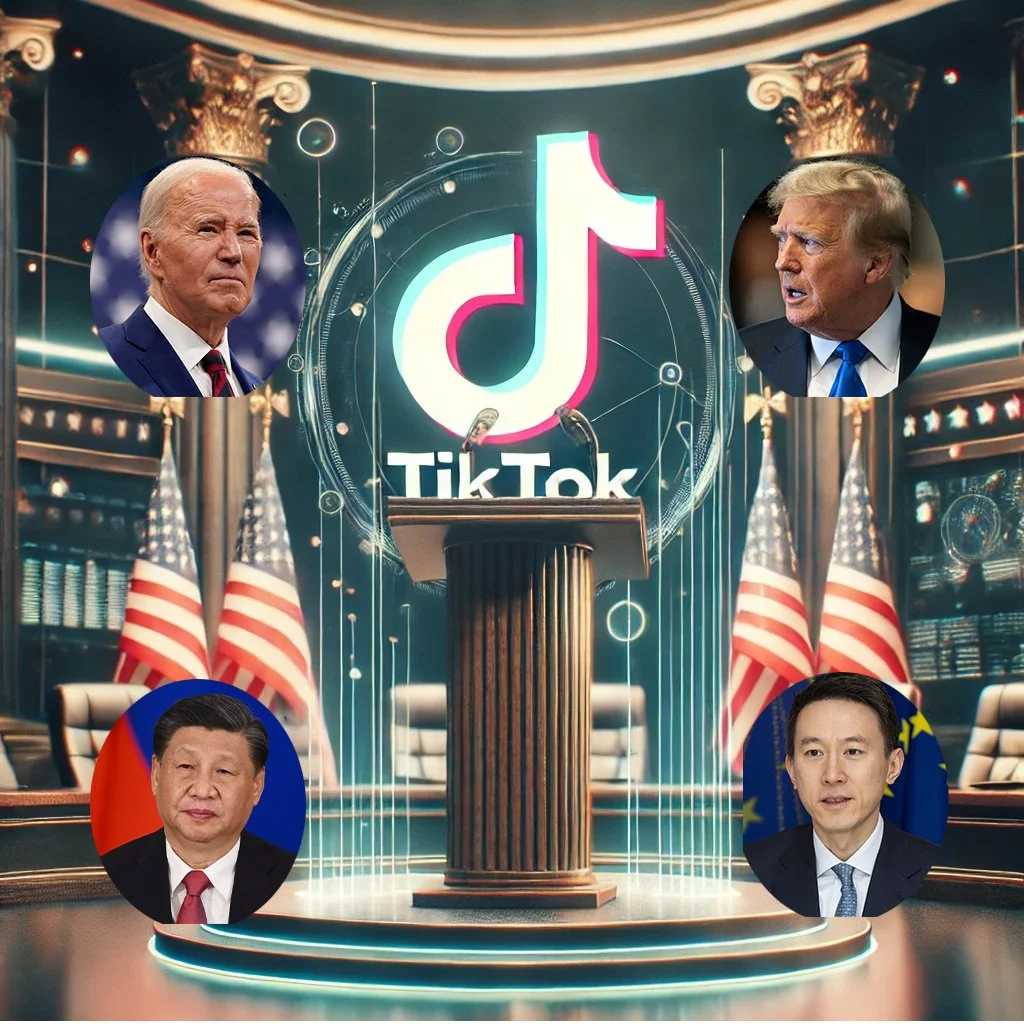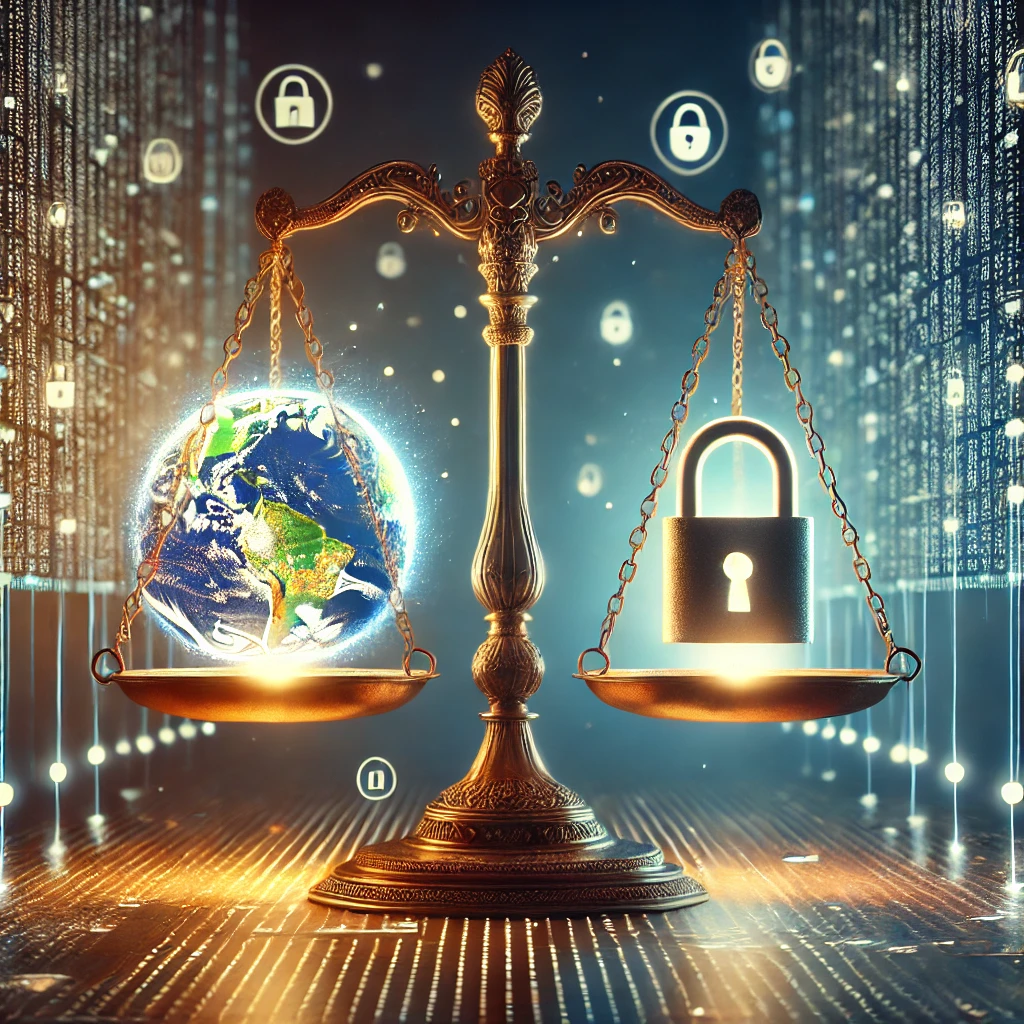More Than Just A Ban?
They did it. They actually did it.
The United States Government has officially banned TikTok, leaving millions of users stunned. The option remains for ByteDance to sell the app to a U.S.-based company, but for now, TikTok has gone dark. At midnight, users attempting to log in were met with a stark message:
*“Sorry, TikTok isn’t available right now.
A law banning TikTok has been enacted in the U.S. Unfortunately, that means you can’t use TikTok for now.
We are fortunate that President Trump has indicated that he will work with us on a solution to reinstate TikTok once he takes office. Please stay tuned!”*
What Can He Do?
President Trump, who takes office tomorrow, has already hinted at a potential 90-day extension for TikTok to comply with the terms of divestiture. In a recent phone interview, he said:
“I think that would be, certainly, an option that we look at. The 90-day extension is something that will be most likely done because it’s appropriate. You know, it’s appropriate. We have to look at it carefully. It’s a very big situation.”
He concluded with, “If I decide to do that, I’ll probably announce it on Monday.”
The law, signed last April by outgoing President Joe Biden, requires TikTok’s Beijing-based parent company, ByteDance, to sell its U.S. operations to a non-Chinese buyer or face a complete nationwide ban. The president is allowed to issue a one-time 90-day extension under three conditions:
1. There’s a clear path to divestiture.
2. There’s “significant progress” in executing the divestiture.
3. There are binding legal agreements in place to ensure the divestiture will occur during the extension.
Despite Biden’s reluctance to enforce the law in his final days, TikTok preemptively went dark on Sunday, citing concerns about potential legal fallout. The app stated it needed “greater clarity and assurance” about the future. White House press secretary Karine Jean-Pierre dismissed TikTok’s move as “a stunt,” stating on Saturday:
“We have laid out our position clearly: actions to implement this law will fall to the next administration. TikTok and other companies should take up any concerns with them.”
For now, TikTok remains inaccessible, and users and businesses alike are left in limbo. However, as with most things on the internet, users have already started finding ways around the ban, exploring VPNs and other tools to regain access. Others are turning to alternative apps like RedNote or Xiaohongshu (小红书), which translates to “Little Red Book” in English. Ironically, Xiaohongshu is actually a Chinese-owned app, unlike TikTok, which is operated by ByteDance’s Singaporean subsidiary. This raises an important question: if data privacy and security are the core issues, why isn’t Xiaohongshu facing the same scrutiny?
This inconsistency highlights the murkiness of the TikTok ban. If the concern is truly about protecting sensitive data from Chinese government access, why isn’t there a broader crackdown on similar platforms? The answer might lie in geopolitics rather than actual security risks.
In a future article, we’ll dive into these TikTok alternatives and explore the methods people are using to access TikTok despite the ban.
Meanwhile, Trump’s impending decision tomorrow could reshape the fate of not just TikTok but a host of other apps developed by ByteDance, including:
• TikTok Studio
• TikTok Shop Seller Center
• CapCut
• Lemon8
• Lark – Team Collaboration
• Marvel Snap
• And more.
The political tug-of-war surrounding TikTok has consumed the final days of the Biden administration, and the stakes couldn’t be higher. Whether TikTok receives a last-minute lifeline or fades into the void of banned apps depends entirely on what happens next. One thing is certain: this story is far from over.
The Data Privacy and Security Angle
At the core of this debate is data privacy. We’re not just talking about your mom’s cat videos here; we’re talking about massive amounts of personal data—location, browsing habits, device info, financial transactions, and potentially even biometric data. The fact that ByteDance is a Chinese company means these apps are subject to Chinese laws, which—let’s be real—have more leeway for government access than most Western democracies. That’s where the security concerns stem from.
Is it paranoid to say that China could use this data for espionage? Well, maybe not paranoid, but it’s certainly speculative. However, if the data being collected on Western users is, in fact, being accessed by the Chinese government (or could be), then that’s a valid concern. We have to be cautious about how much control a foreign government has over sensitive data that could be used for anything from targeted propaganda to, who knows, influencing elections. And this isn’t a wild conspiracy theory. There’s plenty of precedent for data being exploited in politically charged ways.
The US and Other Governments: A Political Play?
It’s no secret that there’s a geopolitical backdrop to all of this. We live in an age where the lines between technology, business, and national security are increasingly blurred. The idea of tech being used as a proxy for geopolitical leverage isn’t new. While many of the concerns about TikTok and its siblings are framed as national security risks, let’s not pretend that the US and other countries don’t have their own agendas in play.
The US tech landscape is dominated by American giants—Google, Facebook, Amazon, etc. And these companies have their own data collection operations, which are scrutinized and legislated differently. When an upstart like ByteDance arrives and becomes so influential, especially among younger audiences, it naturally threatens that dominance. The rhetoric around “security” can often sound like a thinly veiled effort to protect domestic tech industries.
Is this an overreaction? Maybe in some cases. But is it understandable? Sure. Governments are reactive, not proactive. When the threat is ambiguous and unclear, they’d rather err on the side of caution. Whether that caution ends up being effective? That’s still to be determined.
The Banning of Other Apps
Let’s talk about CapCut, Lark, Lemon8, and all the other tools in ByteDance’s arsenal. Here’s where it gets tricky: these are legitimate products in their own right. CapCut, for example, is one of the most efficient and user-friendly video editing apps out there. For creators, it’s a game-changer, and it’s frustrating to see something so useful caught in the crossfire.
Lark? It’s a top-tier collaboration tool that many companies (including some major ones) rely on for internal communication. Lemon8 is ByteDance’s response to Instagram, offering another way for people to share content—just like Meta, but with a fresh twist. All these apps have real-world utility, and banning them impacts individuals and businesses, not just governments.
The challenge here is balancing security with practicality. Are these apps truly posing a security risk, or are they being caught up in a broader political struggle?
What Needs to Happen
The truth is, there’s room for a balanced approach. If there are legitimate security concerns with ByteDance apps, then by all means, governments should put protections in place. But it should be based on actual findings, not speculative fearmongering. Full transparency in how these apps handle user data would go a long way. If ByteDance—or any company—can demonstrate that it’s safeguarding user information and adhering to local privacy regulations, that could help to alleviate some of these concerns.
At the same time, we need to ask ourselves if banning these apps is the right solution. Banning always feels like the easy answer, but it’s not always the most effective. It’s a blunt force strategy that often leaves businesses and consumers—who have no control over geopolitical games—caught in the fallout.
There’s a middle ground here. Instead of outright bans, maybe we need clearer, stronger international regulations on data privacy, regardless of whether the company is based in Beijing or Silicon Valley. For example, require that all apps with access to sensitive data undergo rigorous third-party audits. And maybe, just maybe, we need to look at how we allow governments to use apps for surveillance in the first place. Transparency, checks, and balances—these are the things that will help us navigate the digital landscape more effectively.
In the end, there are legitimate reasons for concern—about data privacy, corporate influence, and the potential for abuse. But there’s also a danger in overreach and creating a “ban-first, ask-questions-later” mentality. We need to be smarter than that.

